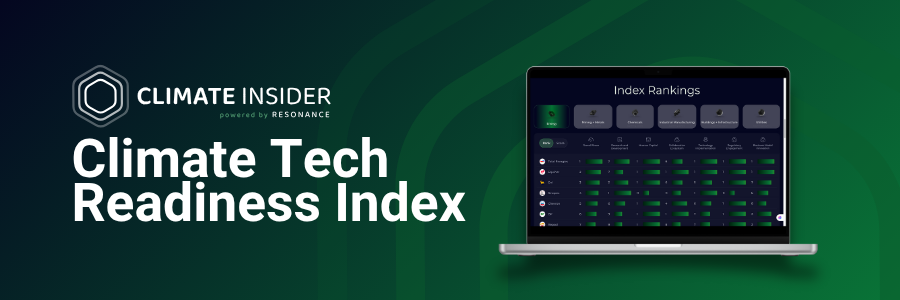The Climate Insider Policy Ticker series provides weekly insight on climate policy, environmental regulations, and government actions. Recent updates include the European Commission’s approval of the Dutch aid scheme for industrial decarbonization, Spanish Prime Minister Pedro Sánchez’s announcement of new subsidy programs to support renewable hydrogen hubs, publication of the first ever EU regulation to reduce methane emissions and Germany’s grant to develop 23 green hydrogen projects.
The European Commission Approves €750m Dutch aid scheme for industrial decarbonisation.
Highlights:
- This initiative is designed to help the Netherlands transition towards a net-zero economy by providing financial incentives to companies to reduce their greenhouse gas emissions by at least 40% compared to current levels.
- Under this scheme, companies will receive direct grants awarded through one or more calls for proposals. To qualify, companies must operate an industrial installation in the Netherlands and commit to reducing their annual greenhouse gas emissions by at least 0.1 Mt by 2030.
- The aid provided to each beneficiary will be capped at €200 million, and all grants will be distributed by no later than 31 December 2025.
- This substantial financial support is part of the broader effort to significantly cut industrial emissions and accelerate the transition to cleaner production methods.
- The Temporary Crisis and Transition Framework (TCTF), which was adopted in March 2023 and subsequently amended in November 2023 and May 2024, serves as a key policy instrument to accelerate the rollout of renewable energies.
- Through these combined efforts, the European Commission and the Dutch government are working to create a more sustainable industrial sector, reduce reliance on fossil fuels, and meet ambitious climate targets.

Spain’s Prime Minister Pedro Sánchez announced yesterday in Congress that his government will allocate €2.3bn ($2.5bn) to four new subsidy programs, including €1.2bn for renewable hydrogen hubs.
Highlights:
- A substantial portion of this investment, €1.2 billion, will be allocated to the development of renewable hydrogen hubs.
- This state aid initiative, expected to be launched this month, builds on the €794 million already announced earlier under the EU’s Important Projects of Common European Interest (IPCEI) program, which received approval from the European Commission in September.
- Another €750 million from the total fund will be directed towards strengthening the wider renewable energy supply chain. This includes the establishment and expansion of manufacturing sites for critical green technologies such as wind turbines, solar panels, batteries, heat pumps, and electrolysers, aimed at bolstering Spain’s capacity to produce these essential components domestically.
- The remaining €350 million will support community energy schemes and the installation of renewable energy systems, particularly focusing on agricultural areas. These initiatives are designed to enhance local energy resilience and promote sustainable practices within rural communities, fostering greater energy independence and sustainability.
- Spain is positioning itself to become a leader in the production of affordable green hydrogen, leveraging its strong solar resources.
- According to gas grid operator Enagas, Spain could potentially produce 2.5 million tonnes of renewable hydrogen annually by 2030, utilising 23.3 GW of electrolysers, based on interest in hydrogen pipeline infrastructure expressed earlier this year.
First-ever EU regulation to reduce methane emissions has been published in the Official Journal of the European Union.
Highlights:
- The first-ever EU regulation to reduce methane emissions, officially titled EU 2024/1787, was published in the Official Journal of the European Union on 15 July 2024. This marks the final step before the legislation comes into force.
- EU 2024/1787 imposes strict new curbs on methane emissions from fossil fuel operations across all EU Member States. The regulation also sets tough standards for imports from oil, coal, and natural gas exporters supplying the EU, addressing emissions across the entire energy supply chain.
- Flavia Sollazzo, Senior Director, EU Energy Transition at Environmental Defense Fund Europe (EDF Europe), highlighted the regulation as significant progress in combating climate change. She emphasised that this ambitious and groundbreaking regulation is a cornerstone of the EU Green Deal and aims to tackle the EU’s external methane footprint as part of its decarbonisation pathway.
- Helen Spence-Jackson, Executive Director at EDF Europe, stressed the importance of advanced monitoring, measuring, and tracking technologies like MethaneSAT in ensuring transparency and demanding immediate action. She emphasised that the regulation’s success depends on proper implementation and collaborative efforts across sectors.
Germany grants €4.6 billion to 23 green hydrogen projects following EU approval.
Highlights:
- German federal and state governments have approved €4.6 billion ($5 billion) in grants for 23 green hydrogen projects that received Important Project of Common European Interest (IPCEI) status from the EU earlier this year.
- These projects, part of the Hy2Infra wave of IPCEIs, aim to significantly enhance Germany’s green hydrogen infrastructure. They are expected to result in the creation of up to 1.4 GW of electrolyser capacity, facilitating the production of green hydrogen.
- The projects also include the development of 2,000 km of hydrogen pipelines, which will play a crucial role in the transportation and distribution of green hydrogen across the region.
- Additionally, the projects will establish 370 GWh of hydrogen storage capacity, ensuring that green hydrogen can be stored efficiently and used as needed to balance supply and demand.








